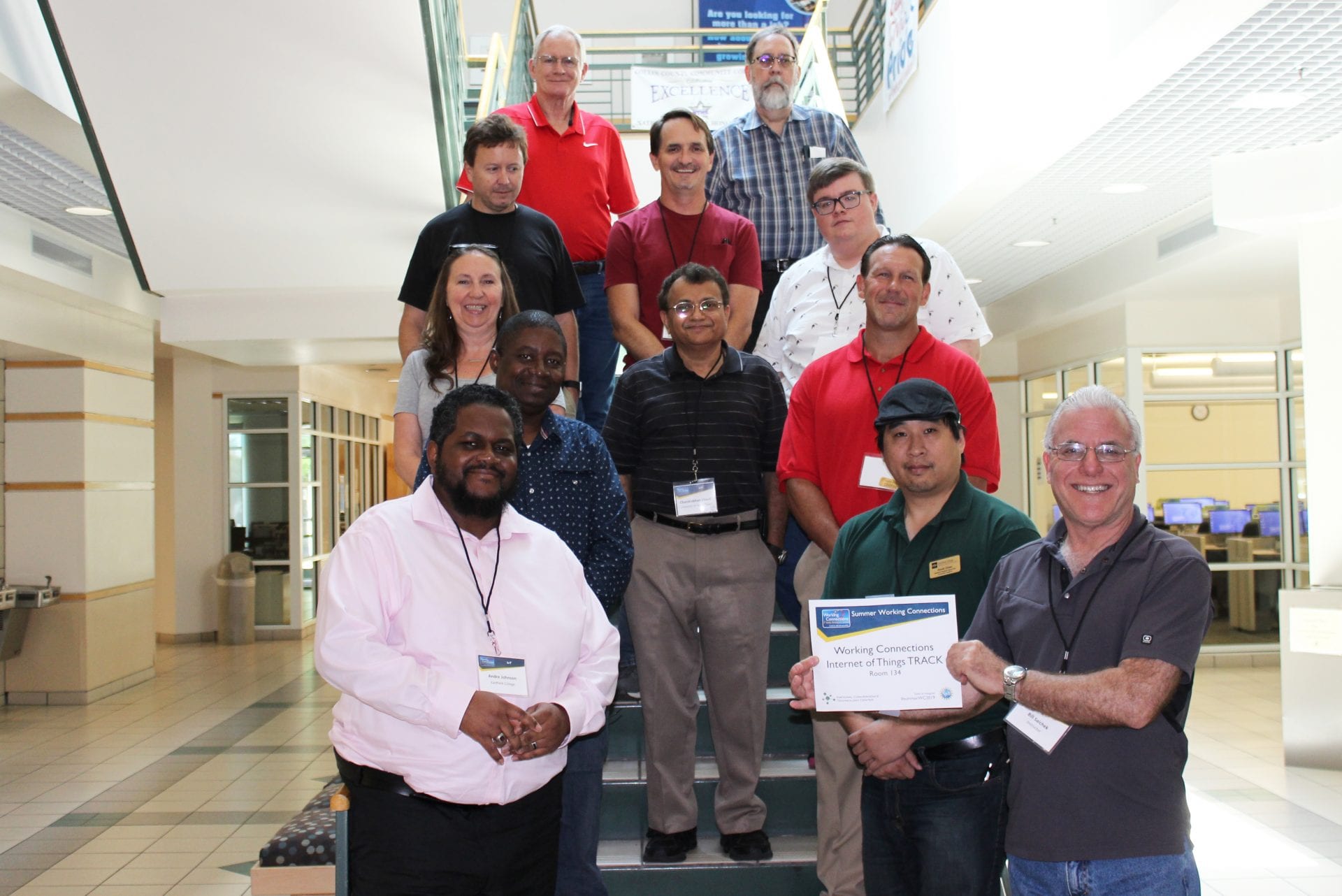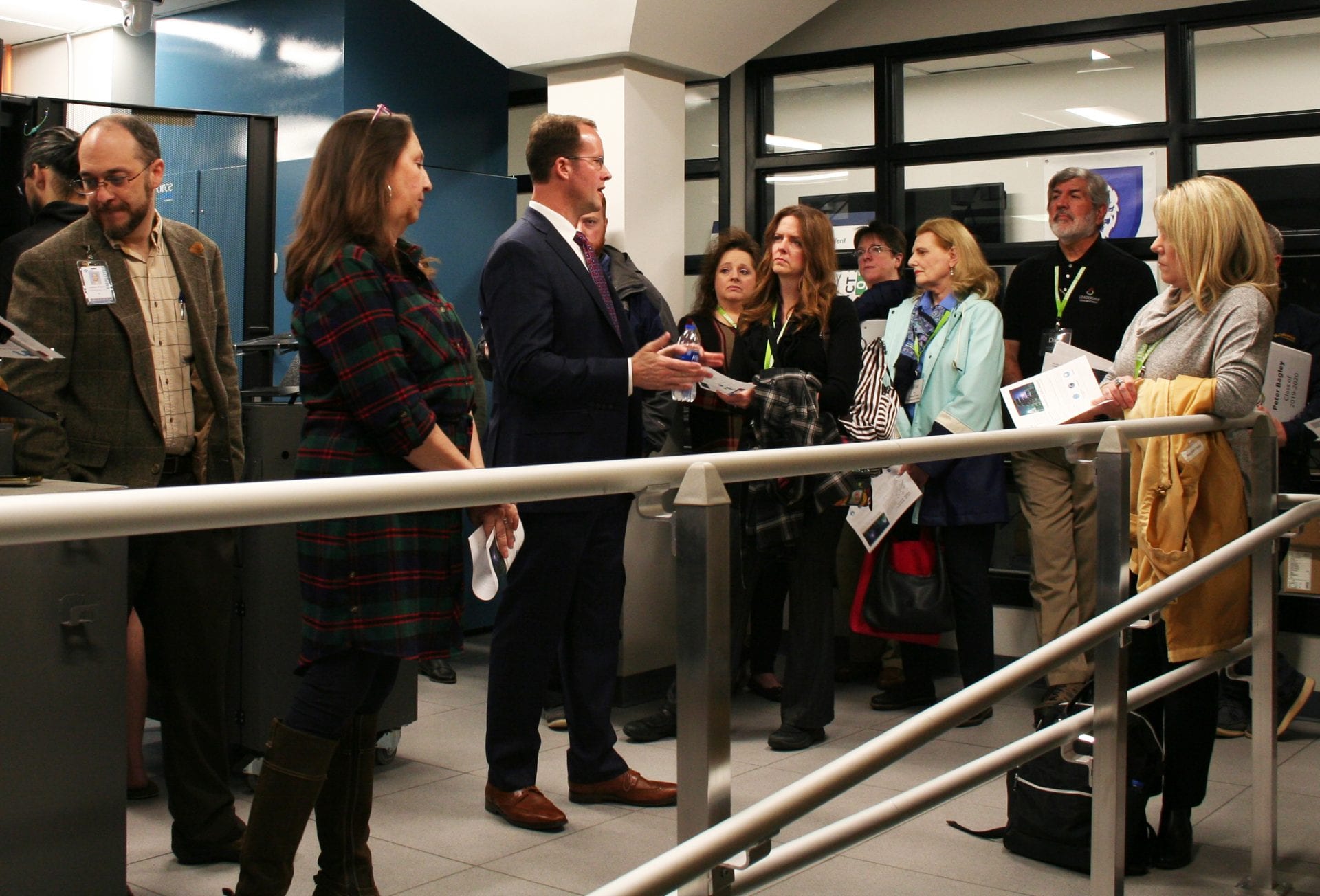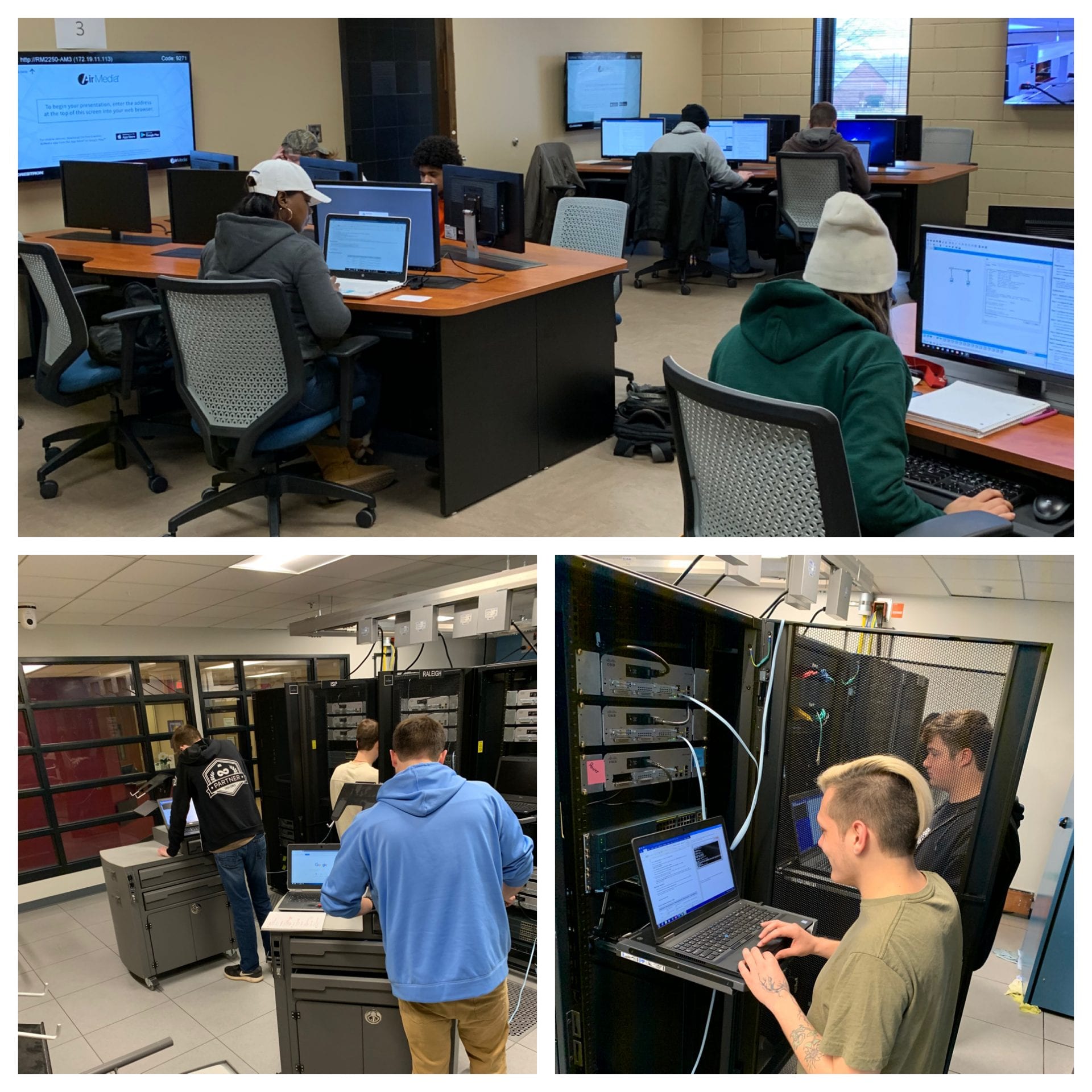CCN Focus: Susan Randall, Cleveland Community College

Susan Randall attended in National Convergence Technology Center’s 2019 Summer Working Connections along with other IT faculty. She’s pictured here on the third row.
As a part of the National Convergence Technology Center (CTC) featured blogs, we would like to introduce to you some of our professors and instructors in the Convergence College Network (CCN) community. The CCN is a select cohort of community colleges and universities from across the country that connects IT educators with a wealth of resources to enhance their programs. In this week’s Q&A blog, we’re featuring Susan Randall, Information Technology Instructor and Computer Information Technology Department Chair at Cleveland Community College, Shelby, North Carolina.
What do you teach? I teach all the Cisco Academy Networking courses and just implemented the new CCNAv7 curriculum. I also teach our “Introduction to Computers” course.
How long have you been a teacher? I have taught fulltime for 6 years and part-time as an adjunct for 14 years.
Did you have a job in industry before you became a teacher? I worked as the network administrator for a local publishing company and a local mental health agency.The publishing company at the time I worked there distributed a weekly and monthly satellite magazine nationally. We hard approximately 150 employees. The mental health agency when I began covered one county but by the time I left, we covered five counties.
What sparked your interest in teaching? I began teaching when my children were small so I could work and have a flexible schedule.
What is the secret to successfully teaching IT to students? To successfully teach IT students, you must pull them out of their shells and keep them motivated and engaged. I begin with small groups or ask questions and once one answers, I’ll ask another student their thoughts on the first students’ response. This typically will get a discussion going. I must pay close attention to body language and facial expressions to know which student to engage. My students start out wanting to work alone and preferably away from others. Group assignments and class discussions bring them out of their shells. By the end of the program they are more comfortable with the soft skills needed.
What’s the biggest challenge teaching IT? The biggest challenge teaching in IT is staying current with IT education and lab.
Do you have a favorite class to teach? If so, why? My favorite course to teach is the first level networking course. To see the students “get it” for the first time and to get excited about the new material is great.
What is the best thing about being a teacher? The best thing about teaching is the flexibility in my schedule and learning – from my students and new curriculum.
What advice would you give an IT student about to graduate and enter the workforce? IT is a competitive market, make sure that your soft skills are readily available as your book knowledge. You know the material, be confident in yourself but be willing to continue learning. I would let them know that their hands-on experience working in the Student Data Center, has given them real world experience that many students do not have.
IT is always changing – how do you keep up with the ongoing evolution of IT? I don’t necessarily feel like I keep up. I try to do some type of professional development quarterly, either with what the CCN offers or via Cisco Networking Academy (NetAcad) Instructor Professional Development (IPD) weeks. I also take advantage of our states North Carolina Computer Instructor’s Association (NCCIA) that strives to keep us up to date.
How do you see the IT landscape changing in the next 5 years? I see IT moving further into AI and cloud. We will still be networking devices, but it may no longer be solely hardware but programmable, not just local for cloud based. Being in a rural region, the changes come slower to our industries and businesses.
Is there anything else we should know but didn’t ask about? Our IT curriculum department is working closely with our area high schools to develop a Computer Science Foundation certificate that the high schools’ students come to our campus (bused from the county high schools) to be more immersed in the college learning environment. We have been promoting our program by giving tours and presenting at the local high schools on their curriculum nights.

The Cleveland County Leadership Development Class of 2020, which consists of 20 leaders in the county, came during my 3rd level networking class to see the students in action in our Student Data Center.
Our Student Data Center was built when our campus data center was built with a DOL grant. The Center is designed to be a small version of an actual data center. Both the IT students and Mission Critical Operations (MCO) students can have real-world hands-on training. The Center hosts eight racks setup in a cold aisle design. The racks hold the routers and switches used with the Cisco Academy courses. The MCO students have three Data Air gForce CRAC units. Many did not realize that we teach networking or that we teach by doing. May have even picked up a new BILT member from this visit. Pictured is our CIO Jonathan Davis standing behind me and our College President Dr. Jason Hurst to my left. Below is a picture of students during a class in the Center.

Students having class in the Student Data Center at Cleveland Community College in North Carolina.
